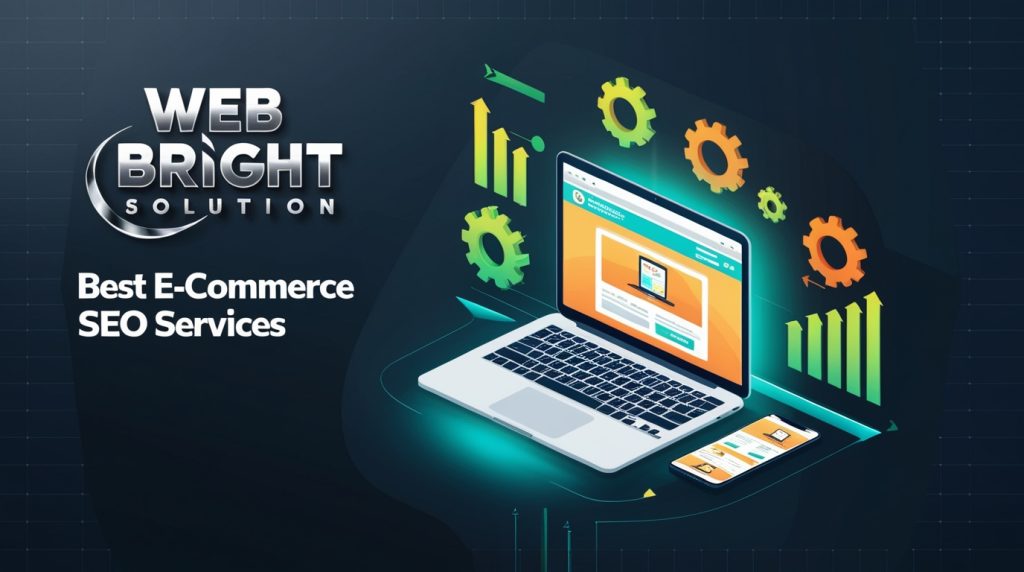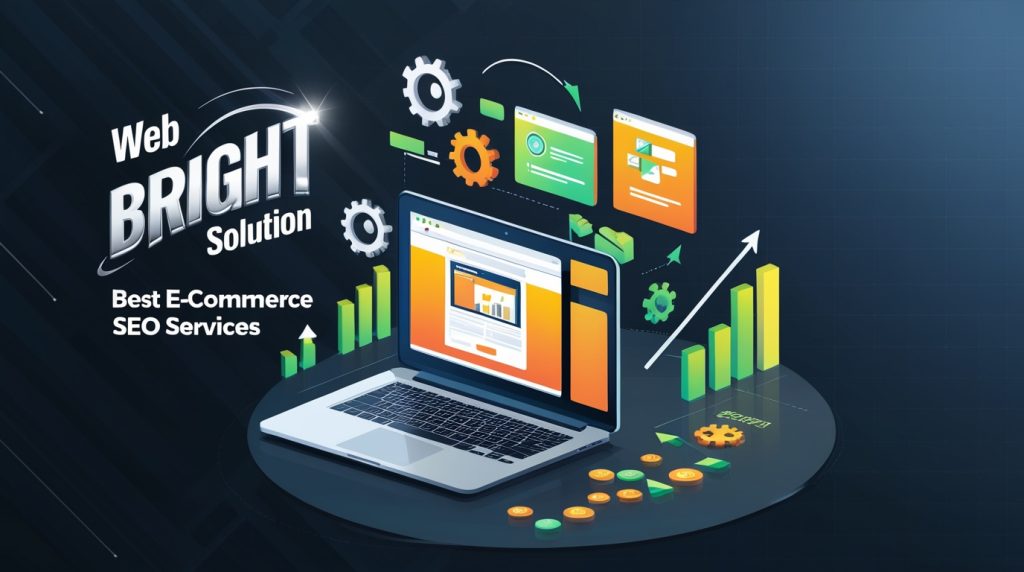E-commerce SEO Best Practices for 2025
2025 is shaping up to be another game-changing year for e-commerce businesses. With advancements in technology, AI, and shifting consumer behaviors, keeping your online store at the top of search engine results pages (SERPs) takes more than basic SEO knowledge. This guide dives deep into the best e-commerce SEO practices for 2025, equipping you with actionable strategies to future-proof your store. Whether you run a Shopify store, a WooCommerce shop, or any other platform, these insights will help you dominate your niche and maximize conversions.

The Future of E-commerce SEO in 2025
Search engine optimization continues to be a pivotal driver of traffic and revenue for e-commerce sites. Businesses can build a competitive edge by staying ahead of trends in mobile-first indexing, voice search, and AI-powered tools. Here’s a breakdown of what you need to know to succeed in the evolving SEO landscape.


1. Keyword Research and Targeting
The backbone of SEO success starts with smart keyword targeting. Here’s how you can leverage advanced keyword research to grow your traffic:
- Target High-Value Keywords: Focus on keywords that drive both traffic and conversions. For e-commerce, these often include “buy now,” “best price,” or product-specific searches.
- Leverage Long-Tail Keywords: Use phrases like “best lightweight laptops under $500” to capture niche, lower-competition audiences.
- Recommended Tools: Platforms like SEMRush, Ahrefs, and Google Keyword Planner remain invaluable for discovering search trends and refining your strategy.
💡 Pro Tip: Use customer reviews and FAQs to identify natural, long-tail keywords customers use when searching for your products.
2. Master Mobile-First Indexing
With Google officially using mobile-first indexing, having a mobile-friendly site is non-negotiable. Here’s how to ensure your e-commerce store ranks on smartphones:
- Test Mobile-Friendliness: Use tools like Google’s Mobile-Friendly Test to see if your site meets mobile SEO benchmarks.
- Optimize Page Speed: Compress images, enable browser caching, and use Content Delivery Networks (CDNs) for faster load times.
- Mobile UX: Ensure navigation, CTA buttons, and checkout processes are seamless on smaller screens.
💡 Pro Tip: Shopify’s mobile optimization tools or WooCommerce SEO plugins can simplify this process significantly.
3. Dominate Voice Search Optimization
Did you know that 55% of households will own a smart speaker in 2025? Optimizing for voice search ensures your store captures conversational search traffic.
- Focus on Question-Based Keywords: Incorporate phrases like “Where can I buy eco-friendly shoes?” into your content.
- Create an FAQ Section: Voice assistants often pull answers from FAQ-rich snippets.
- Use Natural Language: Keep your content tone conversational and straightforward.
💡 Pro Tip: Tools like AnswerThePublic are excellent for uncovering common voice queries related to your industry.
4. AI and Machine Learning in E-commerce SEO
AI is no longer a buzzword; it’s transforming SEO strategies by offering data-driven insights and automation. Here’s how you can use AI to your advantage:
- Keyword Analysis: Use platforms like Jasper or Surfer SEO to spot opportunities and create optimized content at scale.
- Customer Personalization: AI tools like Segment analyze customer behavior to personalize product recommendations, boosting engagement and sales.
- AI-Powered Tools: Consider RankBrain and TensorFlow to optimize your site for SERP signals.
💡 Pro Tip: Incorporate AI to refine SEO campaigns on Shopify or WooCommerce by integrating their built-in tools.
5. Technical SEO for E-commerce
Technical SEO forms the foundation of future-proof e-commerce websites. Here’s what you need to refine:
- Site Structure: A logical, easy-to-navigate hierarchy improves page authority and user experience.
- Crawlability: Use tools like Screaming Frog to detect broken links or missing meta tags.
- Structured Data Markup: Add schema markup for product pages to enhance visibility and drive rich snippets (product ratings, prices, etc.).
💡 Pro Tip: Shopify SEO apps like Schema Pro or WooCommerce’s structured data plugins make integrating markup a breeze.
6. Content Creation and Optimization
Content is king, even in e-commerce. Encourage organic traffic by creating valuable and optimized content:
- Engaging Product Descriptions: Go beyond basic details and naturally include benefits, storytelling, and keywords.
- Blog Content: Write how-to guides and buying tips (e.g., “10 Best Shoes for Runners 2025”) to build authority in your niche.
- Image & Video SEO: Optimize images with alt text and compress file sizes. For videos, host on platforms like YouTube to attract additional search traffic.
💡 Pro Tip: Include tutorials or behind-the-scenes videos to enhance customer trust and engagement.
7. Link Building for E-commerce SEO
Backlinks remain critical in Google’s ranking algorithm. For e-commerce sites, focus on earning high-quality links:
- Collaborate With Influencers: Work with bloggers and content creators to promote your products and earn backlinks.
- Guest Blogging: Share your expertise on established industry sites.
- Content Marketing: Publish link-worthy resources like case studies, infographics, or interactive tools.
💡 Pro Tip: Reach out to niche publications or websites for unique link-building opportunities.
8. Monitor Performance with Analytics
Tracking and tweaking your strategies ensures long-term success. Key performance tracking tools include:
- Google Analytics: Measure organic traffic, bounce rates, and conversion reports.
- Google Search Console: Identify crawling issues, ranking keywords, and site performance.
- Heatmaps: Use Crazy Egg or Hotjar to identify UX bottlenecks.
💡 Pro Tip: Set weekly goals to track growth trends and refine where necessary.
9. Real-world Examples and Case Studies
Here are three notable case studies showcasing successful e-commerce SEO strategies:
- Company A: Boosted organic traffic by 130% in 6 months by focusing on mobile-prioritized content and optimizing product pages.
- Company B: Successfully captured voice search traffic using FAQ-rich snippets, leading to a 40% rise in voice-led sales.
- Company C: Leveraged AI for dynamic SEO campaigns, improving conversion rates by 20%.

In Conclusion
Take Your E-commerce SEO to the Next Level
Mastering e-commerce SEO is key to thriving in the competitive online space in 2025. You can elevate your store’s visibility and drive long-term growth by focusing on mobile-first indexing, voice search, and leveraging AI.
For professional assistance implementing these strategies, check out Web Bright Solution to turn your SEO goals into measurable results. Start optimizing your shop today!
Get Start For Free No Credit Card Required
- FAQ
1. What is e-commerce SEO?
E-commerce SEO is optimizing your online store to rank higher on SERPs, driving traffic, and increasing conversions.
2. What is the difference between Shopify SEO and WooCommerce SEO?
Both Shopify and WooCommerce offer SEO tools, but Shopify is more user-friendly, while WooCommerce gives complete customization control for SEO.
3. Why is mobile-first indexing important?
Google’s mobile-first indexing prioritizes mobile-friendly sites, as most users browse on smartphones. A mobile-optimized site improves rankings and user experience.
4. How can AI help with SEO?
AI improves SEO through keyword insights, personalized recommendations, and content optimization at scale, saving significant time and resources.
